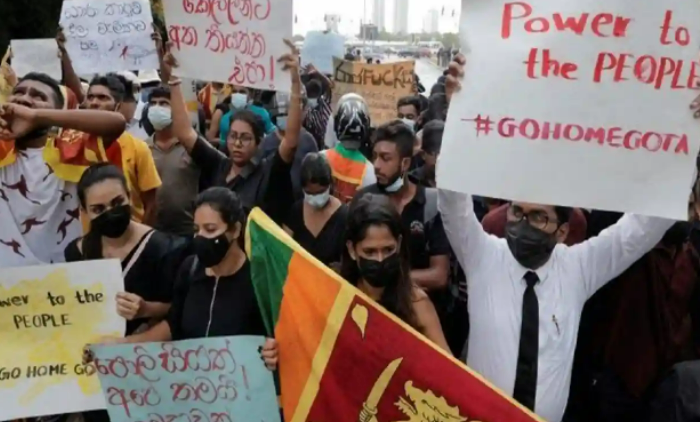Virendra Pandit
New Delhi: With the law and order situation improving slightly in bankruptcy-hit Sri Lanka, the government announced the lifting of the state of national emergency on Saturday, the media reported.
The move came nearly two weeks after it imposed the emergency for a second time within a month across the island nation as it faced unprecedented economic and anti-government protests.
Embattled President Gotabaya Rajapaksa had declared a state of emergency on May 6 at midnight amid growing countrywide anti-government protests over the unprecedented economic crisis his nation faced for the first time since independence from Britain in 1948.
In a statement, the Presidential Secretariat said it had lifted the state of emergency with effect from Friday midnight, according to Hiru News. Emergency gave the police and the security forces sweeping power to arbitrarily arrest and detain people.
President Gotabaya had clamped the emergency after weeks of protests demanding his and the government’s resignation, blaming the once-powerful Rajapaksa clan for mishandling the island nation’s tourist-centric economy, already hit by the pandemic and lockdowns.
In the protests since March, nine people were killed and over 200 injured in clashes between pro-and anti-government protesters, forcing Prime Minister Mahinda Rajapaksa to resign and flee Colombo for safety.
Sri Lanka is facing its worst economic meltdown caused in part by a lack of foreign currency because of the collapsed tourism sector and a lack of remittances from Sri Lankan people working overseas, rendered jobless after the outbreak of the pandemic in 2019. These made it impossible for Colombo to pay for imports of staple foods and fuel, leading to acute shortages and very high prices. The Chinese debt trap also hit the Indian Ocean country.
Last month, a broke Sri Lanka had also announced to default on global payments of USD 52 billion worth of loans.
At present, the island nation’s inflation rate is spiraling toward 40 percent as it faces shortages of food, fuel, and medicines. Rolling power blackouts have led to nationwide protests and a plunging currency.
On April 12, New York-based global rating agency Fitch had downgraded debt-ridden Sri Lanka to ‘C’. Its sovereign rating was “restricted default” after the country defaulted on making international sovereign bond payments.

